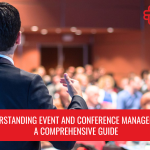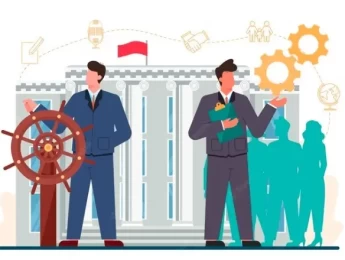As event management professionals, we understand that orchestrating successful public events involves a multifaceted approach. Understanding the key elements of dealing with vendors, honing project management skills, mastering time management, and navigating the intricacies of budgeting is essential. This course examines effective collaboration, negotiation, and relationship-building to ensure seamless event execution.
You'll also gain valuable project management skills tailored to the unique challenges of public events. Planning through the entire project life cycle is important, from initial planning to flawless execution, empowering you to handle various aspects, from conceptualisation to post-event evaluations.
Time management is also a cornerstone of successful event planning. We'll share practical strategies to help you optimally allocate your time and ensure deadlines and tasks are efficiently executed throughout the event planning process. Finally, we’ll look at budgeting as a critical skill that underpins the success of any public event.
Upon completion of this course, participants will be able to:
- Gain essential organisational skills, proficiency in planning and implementation, and a strong foundation in business acumen.
- Acquire the knowledge and skills required for the effective planning, design, and execution of successful events.
- Understand the industry concept of party planning comprehensively.
- Explore strategies for establishing and overseeing your business in event or party planning.
- Delve into tasks such as developing a client base, overseeing employees, and collaborating with vendors and suppliers.
- Master the details of planning diverse functions, including weddings, parties, and baby showers.
This course is designed for anyone responsible for successful event management, budgeting and evaluation. It would be most beneficial for:
- Event Managers
- Event Personnel
- Financial Advisers
- Business Owners
- Event Vendors
- Venue Managers
- Risk Assessors
- Administrative Support
This course uses a variety of adult learning styles to aid full understanding and comprehension. Participants will learn the most effective tools and techniques for successful event management and be guided through trainer-led presentations to understand the intricacies of planning.
A group exercise will be implemented to help participants understand how to assess their event for risks, mitigate them, and recover if something goes wrong on the day. Participants will also be provided with effective budget management tools and understand how to raise funds for large events using past case studies.
Day 5 of each course is reserved for a Q&A session, which may occur off-site. For 10-day courses, this also applies to day 10
Section 1: Management Methodology
- Introduction to the role and responsibilities of an event manager.
- Effective communication skills for event managers.
- Negotiation and conflict resolution skills.
- Creativity and innovative thinking in event design and planning.
- Budgeting and financial management skills for event success.
Section 2: The Qualities of an Event Manager
- Adaptability and flexibility in dynamic event environments.
- Attention to detail and precision in event logistics.
- Sustainability awareness and practices in event planning.
- Emotional intelligence and interpersonal skills.
Section 3: How to Be Organised & Effective
- Problem-solving and decision-making skills.
- Time management and organisational skills for event success
- Client relationship management and customer service.
- Networking and relationship-building skills for industry connections.
- Technical proficiency and familiarity with event technology.
Section 4: Being a Passionate Leader for Events
- Leadership qualities and team management in event planning.
- Understanding the role of passion.
- Cultivating and maintaining enthusiasm.
- Inspiring and motivating a team through passionate leadership.
- Aligning personal values with the mission of event projects.
Section 5: Risk Prediction & Mitigation
- Crisis management and quick-thinking abilities in emergencies.
- Cultural sensitivity and awareness in diverse event settings.
- Legal and ethical considerations in event management.
- Stress management and resilience for sustained event success.
Section 6: Successful Event Closing
- Importance of a well-planned event closing.
- Technology tools for efficient event closing procedures.
- Documenting and archiving event-related materials.
- Closing ceremonies and acknowledgements.
- Final reporting to clients and stakeholders.
- Post-event marketing and promotion strategies.
- Transitioning from event execution to evaluation.
Section 7: Lessons Learned, Feedback & Evaluation
- Industry certifications and professional development for event managers.
- Post-event evaluation and analysis.
- Financial reconciliation and budget review.
- Vendor and stakeholder feedback collection.
- Attendee satisfaction surveys and analysis.
- Return on investment (ROI) assessment.
Upon successful completion of this training course, delegates will be awarded a Holistique Training Certificate of Completion. For those who attend and complete the online training course, a Holistique Training e-Certificate will be provided.
Holistique Training Certificates are accredited by the British Assessment Council (BAC) and The CPD Certification Service (CPD), and are certified under ISO 9001, ISO 21001, and ISO 29993 standards.
CPD credits for this course are granted by our Certificates and will be reflected on the Holistique Training Certificate of Completion. In accordance with the standards of The CPD Certification Service, one CPD credit is awarded per hour of course attendance. A maximum of 50 CPD credits can be claimed for any single course we currently offer.
- Course Code IND15-112
- Course Format Classroom, Online,
- Duration 5 days












